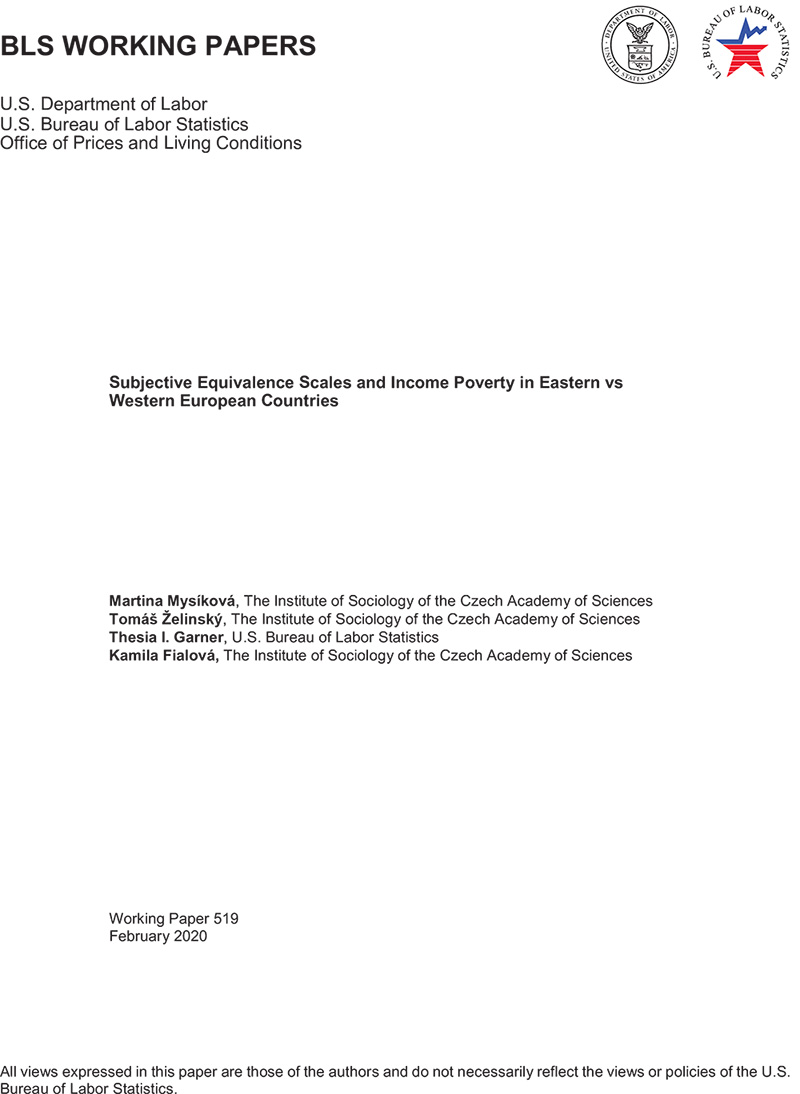Mysíková, Martina, Želinský, Tomáš, Garner, Thesia I., Fialová, Kamila. 2019. „Subjective equivalence scales and income poverty in Eastern vs Western European countries“. BLS Economic Working Paper No. WP-519. Washington: Bureau of Labor Statistics. 36 p. Available from: https://www.bls.gov/osmr/research-papers/2019/pdf/ec190090.pdf
This study uses the intersection approach to estimate Subjective Poverty Lines and implicit subjective equivalence scales for European countries. The subjective poverty lines are derived from the Minimum Income Question included in the 2017 EU–Statistics on Income and Living Conditions data. Subjective equivalence scales differ across the European region, showing lower economies of scale for Eastern European countries. When the estimated subjective equivalence scales are applied to derive the official at-risk-of-poverty (AROP) rather than the OECD-modified scale, the ranking of countries changes only moderately. However, subjective poverty (SP) rates based on the derived subjective lines change the ranking of European countries markedly. SP rates show a much clearer pattern of the East-West division of Europe. The results suggest that country-specific economies of scale should be considered in studies of economic well-being, particularly those focused on income poverty.
Department
Topics
Standard of Living
